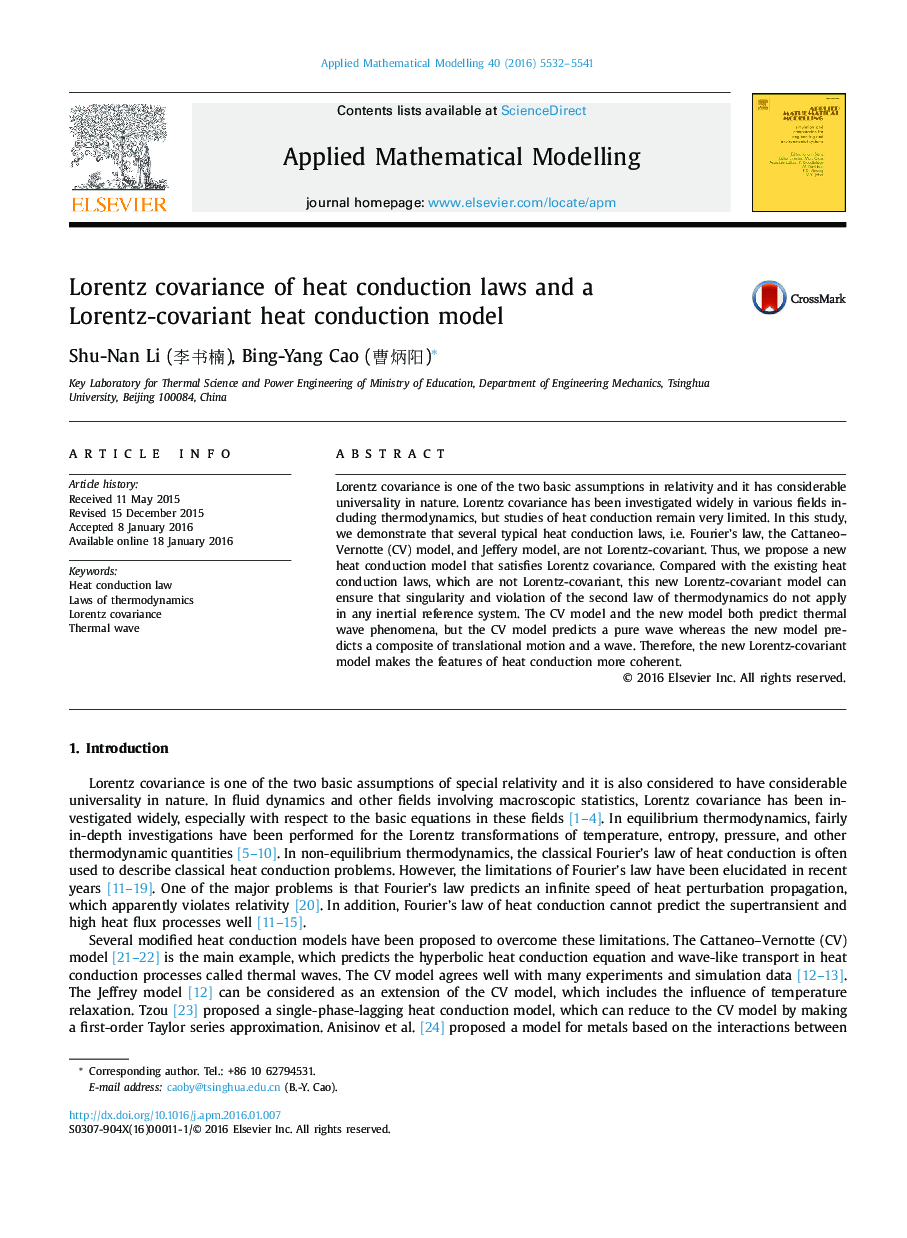| Article ID | Journal | Published Year | Pages | File Type |
|---|---|---|---|---|
| 1702970 | Applied Mathematical Modelling | 2016 | 10 Pages |
•Existing typical heat conduction laws are demonstrated to be not Lorentz-covariant.•We propose a new heat conduction model which satisfies the Lorentz covariance.•The singularity and violation of the second law of thermodynamics are conquered.•The new model predicts a composite heat wave of translational motion and wave.
Lorentz covariance is one of the two basic assumptions in relativity and it has considerable universality in nature. Lorentz covariance has been investigated widely in various fields including thermodynamics, but studies of heat conduction remain very limited. In this study, we demonstrate that several typical heat conduction laws, i.e. Fourier's law, the Cattaneo–Vernotte (CV) model, and Jeffery model, are not Lorentz-covariant. Thus, we propose a new heat conduction model that satisfies Lorentz covariance. Compared with the existing heat conduction laws, which are not Lorentz-covariant, this new Lorentz-covariant model can ensure that singularity and violation of the second law of thermodynamics do not apply in any inertial reference system. The CV model and the new model both predict thermal wave phenomena, but the CV model predicts a pure wave whereas the new model predicts a composite of translational motion and a wave. Therefore, the new Lorentz-covariant model makes the features of heat conduction more coherent.
